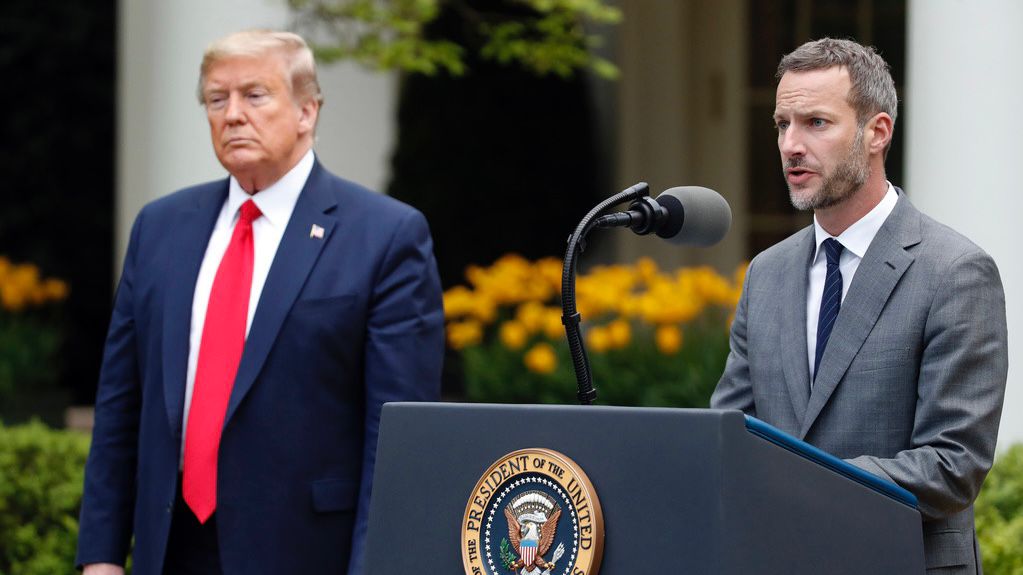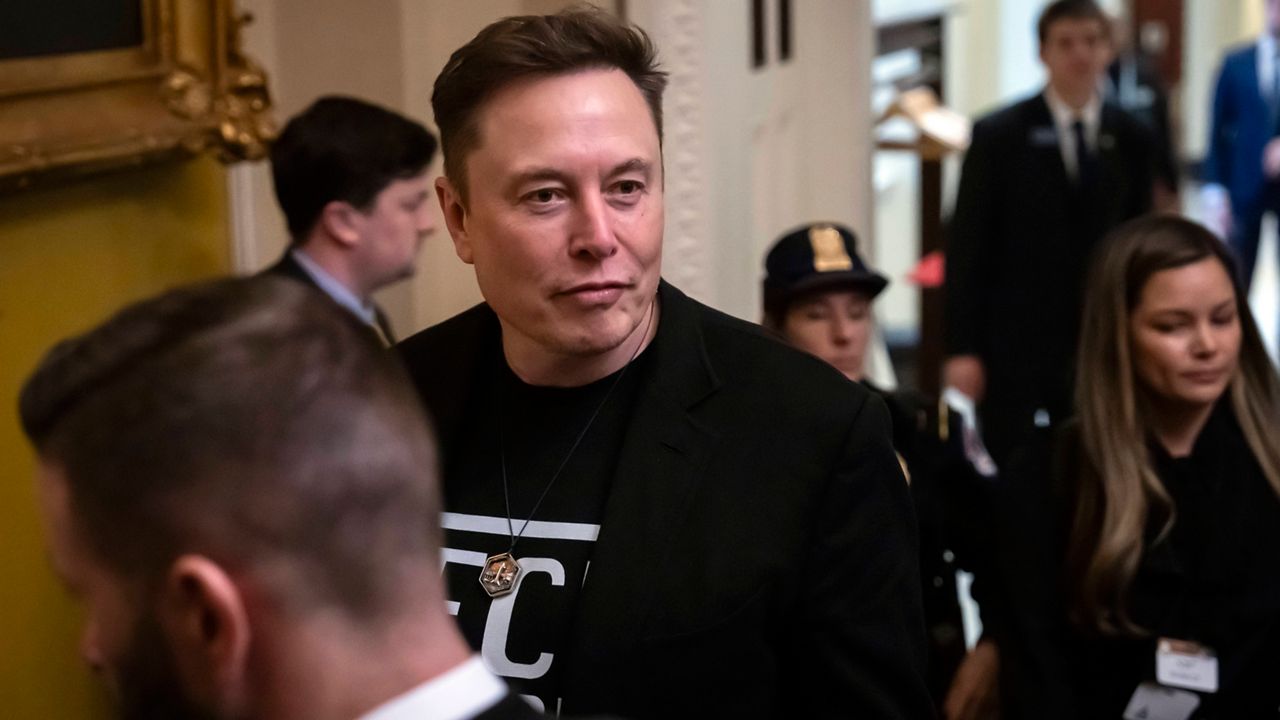After weeks of negotiations, President Joe Biden said Sunday evening that he and House Speaker Kevin McCarthy smoothed out a final agreement on a bill that would raise the debt limit and avert a first-ever default ahead of a June 5 deadline.
"We've got good news," Biden told reporters at the White House. "I just spoke with Speaker McCarthy, we've reached a bipartisan budget agreement that we're ready to move to the full Congress."
Now comes the tough part: Getting the bill through both chambers of Congress ahead of the deadline, with some lawmakers in both parties expressing concerns about the compromise.
Central to the accord is a two-year budget deal that would essentially hold spending flat for 2024, while boosting it for defense and veterans, and capping increases at 1% for 2025, while raising the debt limit for two years through the 2024 presidential election.
"I think it's a really important step forward," Biden said. "It takes the threat of catastrophic default off the table protects our hard-earned and historic economic recovery."
Biden went on to acknowledge that the agreement "represents a compromise" with House Republicans, who control the lower chamber.
"This means no one got everything they want, but that's the responsibility of governing," the president added.
Speaking to reporters earlier Sunday, McCarthy similarly offered that "it doesn't get everything everybody wanted, but in a divided government, that's where we end up."
"I think it's a very positive bill," the California Republican said. "I think at the end of the day, people can look together to be able to pass this in the House and the Senate together and send it to the president."
Speaking to CBS News' "Face the Nation" on Sunday, Minority Leader Hakeem Jeffries, D-N.Y., predicted that the bill will pass, but would not commit to how many Democrats would support the bill.
"It's my understanding that they are committed to producing at least 150 votes, if not more," Jeffries said of Republicans.
But when Jeffries was asked if he could guarantee the country would not default, he said: "Yes."
"In every single negotiation when it comes to debt ceiling and others, you get both sides of the party voting to pass the bills and I expect the same thing to happen," McCarthy said at his news conference on Sunday.
Both sides claimed victory in the negotiations.
"It has historic reductions in spending, consequential reforms that will lift people out of poverty into the workforce, rein in government overreach," McCarthy said Saturday night. "There are no new taxes, no new government programs."
"Overwhelmingly, Republicans in this conference are gonna support the deal," South Dakota Rep. Dusty Johnson said on CNN's "State of the Union" on Sunday. How could they not? It is a fantastic deal."
The bill will put in place tougher work requirements for recipients of government aid, a key Republican priority. The measure ensures people ages 49-54 with Supplemental Nutrition Assistance Program (SNAP) benefits -- formerly known as food stamps -- would have to meet work requirements if they are able-bodied and without dependents. Biden was able to secure waivers for veterans and people experiencing homelessness.
The measure also codifies an end to the pause on student loan repayments for Aug. 29, 2023 -- per a memo obtained by Spectrum News from a Democratic source, Biden was planning to do on Sept. 1 anyway. It also makes slight reforms to the National Environmental Policy Act by designating a "a single lead agency" to conduct environmental reviews, an effort to streamline some energy and infrastructure projects.
The bill reclaims roughly $30 billion in unspent COVID-19 relief funds, while preserving measures like $5 billion in funding for Project Next Gen, the Biden administration's coronavirus vaccine development program, as well as halted some funds directed toward the IRS.
A deal would avert a catastrophic U.S. default, but risks angering both Democratic and Republican sides with the concessions made to reach it.
"The agreement prevents the worst possible crisis and default for the first time in our nation's history," Biden said Sunday. "An economic recession, retirement accounts devastated millions of jobs lost. It also protects key priorities, accomplishments and values that congressional Democrats and I have fought long and hard for: investing in America's agenda that's creating good jobs and communities throughout the country, protect Social Security, Medicare and veterans and so much more."
"The speaker and I made clear from the start, that the only way forward was a bipartisan agreement," the president continued. "That agreement now goes to the United States House and to the Senate. I strongly urge both both chambers to pass that agreement."
The framework agreement was announced Saturday night, one day after Treasury Secretary Janet Yellen told Congress that the United States could default on its debt obligations by June 5 — four days later than previously estimated, which gave the two sides a bit of extra time as they scrambled to reach a deal.
"We have learned from past debt limit impasses that waiting until the last minute to suspend or increase the debt limit can cause serious harm to business and consumer confidence, raise short-term borrowing costs for taxpayers, and negatively impact the credit rating of the United States," Yellen wrote. "In fact, we have already seen Treasury’s borrowing costs increase substantially for securities maturing in early June.
"If Congress fails to increase the debt limit, it would cause severe hardship to American families, harm our global leadership position, and raise questions about our ability to defend our national security interests," she added.
Any deal would need to be a political compromise in a divided Congress. Many of the hard-right Trump-aligned Republicans in Congress have long been skeptical of the Treasury’s projections, and they are pressing McCarthy to hold out.
McCarthy commands only a slim Republican majority in the House, powered by hard-right conservatives who may resist any deal as insufficient as they try to slash spending. But compromising with Democrats for votes, he risks losing support from his own rank-and-file, setting up a career-challenging moment for the new speaker.
McCarthy told reporters on Sunday that he isn't concerned about the possibility that disagreements will lead to a challenge to his speakership.
"We did a conference call with our conference and over 95% were overwhelmingly excited about what they see," he said.
Several Republicans celebrated the deal, like Nebraska Rep. Don Bacon, who told Axios that he will back the bill: "It’s reasonable and responsible. It cuts spending and does not raise taxes.”
New York Rep. Anthony D'Esposito wrote on Twitter that Speaker McCarthy "delivered on our promise to the American people and reached an agreement in principle to get America back to fiscal responsibility."
Fellow New York Republican Rep. Mike Lawler agreed, writing on Twitter: "While no one is going to be happy about every aspect of the bill, it represents a compromise and a major step forward for our country."
"Voters elected me to serve as a check & balance on the Biden Administration & that is exactly what I have done," he added. "I will be voting for this bill."
Many Republican lawmakers, including several members of the far-right House Freedom Caucus, expressed skepticism about the deal.
South Carolina Rep. Ralph Norman called the deal "insanity."
"A $4T debt ceiling increase with virtually no cuts is not what we agreed to," he wrote on Twitter. "Not gonna vote to bankrupt our country. The American people deserve better."
Colorado Rep. Ken Buck called it "debt ceiling surrender."
"The bottom line is that the U.S. will have $35 trillion of debt in January, 2025," he wrote. "That is completely unacceptable."
It also drew some consternation from some Senate Republicans, with Utah Sen. Mike Lee writing: "Punting at your opponent’s one-yard line isn’t a winning strategy."
"Fake conservatives agree to fake spending cuts," said Kentucky Rep. Rand Paul. "Deal will increase mandatory spending ~5%, increase military spending ~3%, and maintain current non-military discretionary spending at post-COVID levels. No real cuts to see here. Conservatives have been sold out once again!"
South Carolina Sen. Lindsey Graham expressed skepticism about a defense spending increase being lower than the rate inflation, saying the deal raises "more questions than answers."
But one key Senate Republican announced Sunday his support for the measure: Minority Leader Mitch McConnell, R-Ky., who said the accord "makes urgent progress toward preserving our nation’s full faith and credit and a much-needed step toward getting its financial house in order."
"The agreement the Speaker reached with President Biden sets meaningful limits on the Administration’s spending agenda," McConnell wrote in a statement. "At the same time, it secures permitting reforms and reinforces the link between federal assistance and work. The Senate must act swiftly and pass this agreement without unnecessary delay."
North Carolina Rep. Dan Bishop accused McCarthy of "getting almost zippo in exchange for $4T debt ceiling hike" and included a vomit emoji in a Twitter post.
"I will not adopt the Biden defense budget and call it a success," Graham said on "Fox News Sunday," adding: "I like Kevin a lot, but don't tell me the Biden defense budget fully funds the military."
Speaker McCarthy responded to Bishop's Twitter post in an appearance on "Fox News Sunday," saying it's "okay" to lose the North Carolina lawmaker's vote "because more than 95% of all those in the conference were very excited."
"I think you’re going to get a majority of Republicans voting for this bill," as well as some Democratic support, McCarthy said on Fox News.
Johnson, on CNN, downplayed the concerns from far-right members of the conference, noting that "when you're saying conservatives have concerns, it is really the most colorful conservatives."
It wasn't just Republicans expressing skepticism about the bill: Washington Rep. Pramila Jayapal, the chair of the Congressional Progressive Caucus, said she did not know how she will vote on the bill, adding that she needs to see the legislative text of the bill.
"I'm not a big fan of in principle or frameworks," Jayapal told CNN's Jake Tapper on "State of the Union" on Sunday. "That's always a problem. If you can't see the exact legislative text and we're all trying to wade through spin right now."
Jayapal went on to say that it's "really unfortunate" that Biden opened the door to work requirements for food assistance benefits, but added that she's unsure of what the bill will actually contain.
"While at the end of the day, perhaps this will, because of the exemptions, perhaps it will be okay, I can't commit to that I really don't know," she said.
When Tapper asked Jayapal if the White House and Democratic congressional leadership if they have to worry about whether her caucus will support the bill, she quickly replied "yes."
On Fox News on Sunday, Connecticut Rep. Jim Himes slammed the bill, saying that "none of the things in the bill are Democratic priorities," but said he was unsure which way he will vote on the measure.
That said, Himes admitted that some of his fellow Democrats may support the measure because "it is very small bill" that does not resemble the bill House Republicans passed last month.
The Associated Press contributed to this report.









